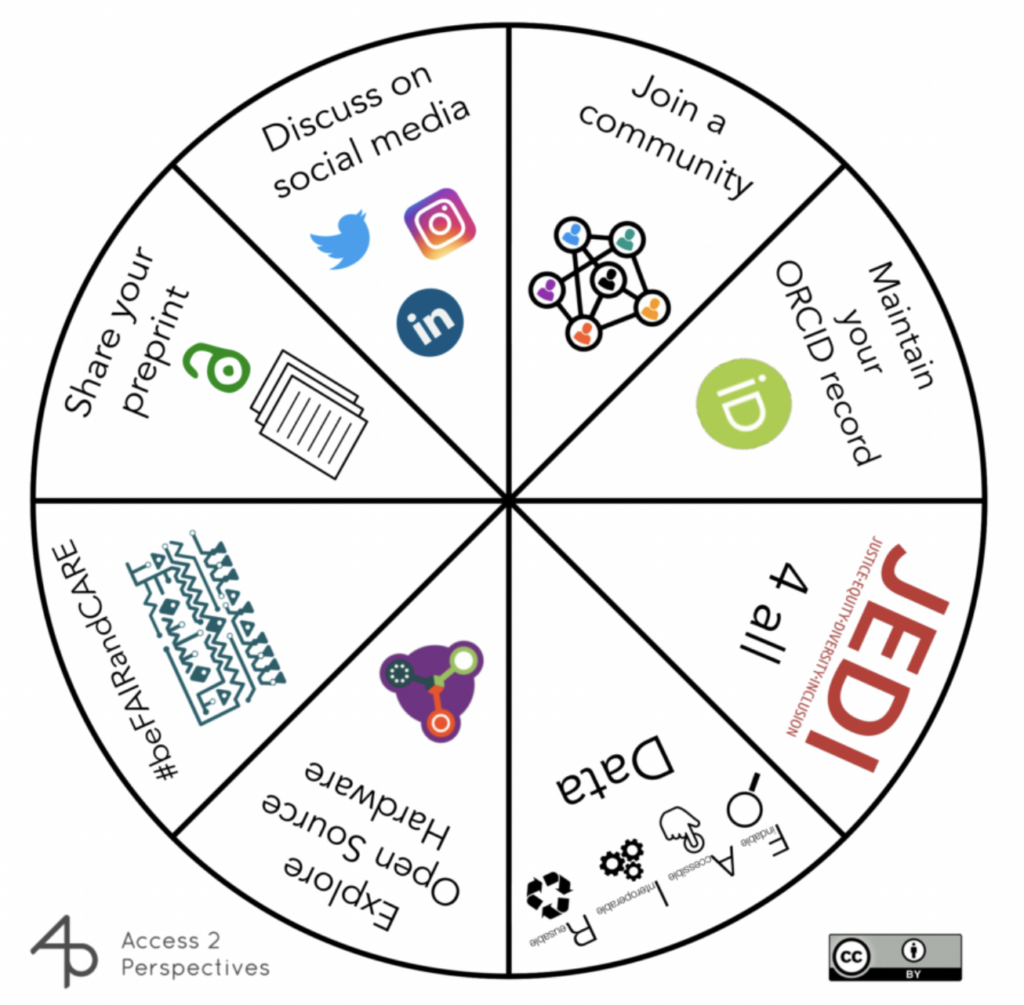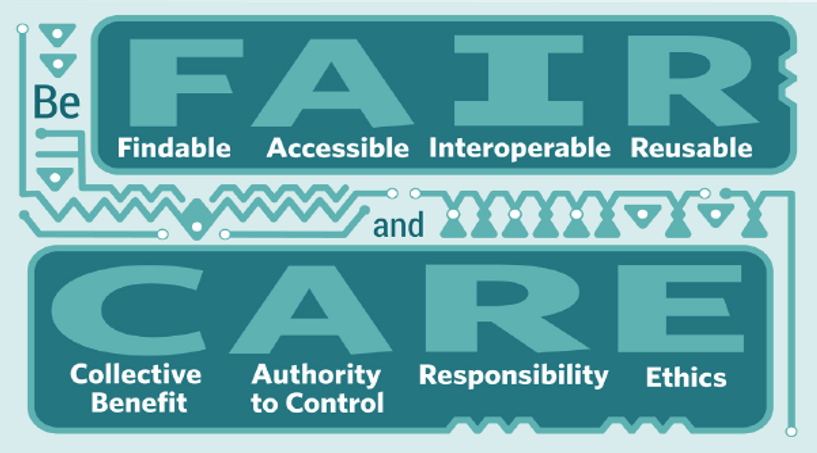The Open Science Pie visualizes eight (8) important pieces of Open Science that can easily be implemented by any researcher to foster transparent, reproducible, and efficient research practices.

Cite as: Havemann, Jo. (2021). Open Science Pie. Zenodo. https://doi.org/10.5281/zenodo.4587729
Join a community

Most things in Life are easier and more fun if done together with other people; this holds especially true for Open Science practices. We can learn and explore the breadth of possibilities together, get inspired by people in other disciplines to adapt to our own research culture, and collaboratively in the team compare and assess how open our research project should and can be while protecting animal and plant species as well as human rights and personal data of the people we work with; and otherwise sensitive data.
Hundreds of Open-Science-related communities exist that are either region-specific or focus on a specific aspect of Open Science or a discipline. For a start check the Open Science MOOC and Open Scholarship Knowledgebase, then search for more by keywords related to your research interest and step in the workflow, e.g. by exploring this interactive map of grassroots Open Science communities from around the world–originally initiated by Brian Nosek and his team at the Center for Open Science).
Maintain your ORCID record

Your ORCID iD is a free, unique, persistent identifier that you own and control—forever. It distinguishes you from every other researcher across disciplines, borders, and time. You can connect your iD with your professional information—affiliations, grants, publications, peer review, and more. You can use your iD to share your information with other systems, ensuring you get recognition for all your contributions, saving you time and hassle, and reducing the risk of errors.
info.orcid.org/benefits-for-researchers/
JEDI 4 all

D.E.I. stands for Diversity, Equity and Inclusion which is being discussed at an increasing number of events and often amongst Open Science activists. Impactful campaigns and initiatives include #BlackinSTEM and #BROpenScience and there are many others to be found initiated by concerned and affected individuals and research departments and institutions, read e.g. from the Dept. of Civil and Environmental Engineering at Washington University, USA and check out the Toolkit developed at the Dept. for Allied Health Sciences, School of Medicine at the University of North Carolina at Chapel Hill. Fostering a research culture where Justice, Equity, Diversity, and Inclusion can thrive is beneficial for everyone involved gives rise to better research results.
F.A.I.R. Data

Originally published in the article entitled ‘FAIR Guiding Principles for scientific data management and stewardship’ (2016) were postulated to provide guidelines to improve the Findability, Accessibility, Interoperability, and Reuse of digital assets. The underlying intention was to make research data accessible to the diverse range of stakeholders:
- researchers wanting to share, get credit, and reuse each other’s data and interpretations;
- professional data publishers offering their services;
- software and tool-builders providing data analysis and processing services such as reusable workflows;
- funding agencies (private and public) increasingly concerned with long-term data stewardship; and
- a data science community mining, integrating and analysing new and existing data to advance discovery
Explore Open Source Hardware
And you want to do that by learning from and with the GOSH community; check out their website at openhardware.science to reduce barriers between diverse creators and users of scientific tools to support the pursuit and growth of knowledge.

#beFAIRandCARE
Conducting research by Good Scientific Practices which is basically the same as following Open Science Principles and sharing your research data in a FAIR manner is good, and you can take it all to another level of Justice, Equity, Diversity, and Inclusion by embracing and pursuing as well the CARE principles for indigenous data governance.

Share your preprint

